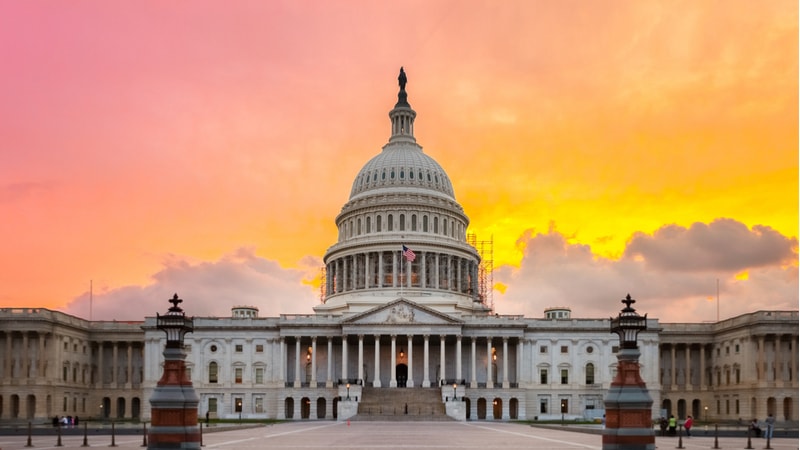
Senate-approved legislation that would boost Federal funding for U.S.-based semiconductor manufacturing and provide the National Science Foundation (NSF) with another $52 billion over five years for research initiatives received strong endorsements from private sector witnesses at a July 15 Senate Commerce, Science, and Transportation Committee hearing.
While the Senate has already passed the United States Innovation and Competition Act (USICA) that embodies the NSF research and semiconductor funding, legislators are considering further action to build resiliency in supply chains, especially in emerging tech sectors.
Witnesses at the July 15 backed the thrust of the USICA bill and recommended fully funding the CHIPS Act to rebuild American semiconductor production, as well as funding research into other emerging technologies.
“At the heart of the current supply chain challenges we face, which every American can now see and feel, is a tiny and often invisible ingredient that is crucial to safeguarding economic growth, national security, and our continued ability to achieve technological and scientific advances: semiconductors,” Director of IBM Research Dario Gil told the committee.
“Semiconductors are the beating heart of modern electronics – they power every sector of our economy and every facet of our lives. This phone, every American’s phone, could not function without them,” he continued.
The Senate-passed USICA would provide $52 billion to fund the CHIPS Act, a measure called for in the administration’s 100-day review of supply chain resiliency. Witnesses said this was a step in the right direction.
John Miller, Vice President of Policy for the Information Technology Industry (ITI) Council, voiced support for the supply chain and semiconductor programs included in the White House review and the USICA legislation and said the emergency appropriations for the CHIPS Act included in USICA are “imperative for maintaining a competitive edge” in the semiconductor sector.
He also called for a holistic approach to securing the supply chain and the creation of a lead agency to handle supply chain risk management.
“The Federal government’s ability to provide consistent regulatory approaches and supply chain security guidelines is critical to securing the U.S. innovation economy and ensuring supply chain resiliency,” Miller said in prepared testimony.
“Legitimate concerns have too often manifested in uncoordinated, inconsistent approaches across various departments and agencies,” Miller said. “We have encouraged the establishment of a lead agency on supply chain risk management to manage a coordinated and effective approach to varied and disparate activities occurring at all levels of government.”
Among his other recommendations was funding regional tech hubs across the nation to help foster innovation and competition in the semiconductor and other emerging tech sectors.
While the Senate has already passed USICA, the House opted to pass two alternative bills to the act. The three bills likely will need to be negotiated into a single package that both the House and Senate can vote on.
